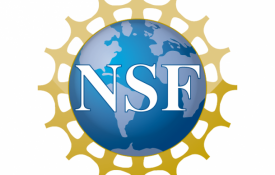-
Does Our High School Popularity Affect Us Today?
Psychologist Mitch Prinstein talks about why we are biologically programmed to care about what others think of us, why teenagers first become addicted to popularity, and why being “cool” in high school may be bad for our long-term happiness and success. For the first time in the history of the human species, Prinstein argues, we have become confused about two different types of popularity, and many of us may unwittingly be focused on the wrong one.
-

Most Links Between Personality Traits and Life Outcomes Are Replicable, Study Shows
Links between personality traits and life outcomes found in previous research are largely reproducible, according to findings from a large-scale replication project. Visit Page
-

New Research From Psychological Science
A sample of research exploring causal inference about outcomes, preschoolers’ conversational turns, and contributors to prosocial behavior following a natural disaster. Visit Page
-

Screen Time – Even Before Bed – Has Little Impact on Teen Well-Being
Data from more than 17,000 teenagers shows little evidence of a relationship between screen time and well-being in adolescents. Visit Page
-

NSF Announces Funding Opportunity for Large-Scale Integrative Research on Cybersecurity
NSF seeks applications for the Secure and Trustworthy Cyberspace Frontiers program, which funds research, development, and education on cybersecurity threats and strategies to protect privacy, such as cyber system vulnerabilities that arise from human behaviors and choices. Visit Page
-
Extended Deadline for EuroCogSci 2019 Paper & Poster Submission
The European Conference for Cognitive Science 2019 (EuroCogSci 2019) will be held September 2 to 4 at Ruhr-Universität Bochum in Germany. The conference will feature contributed papers, symposia, and posters covering all subfields of cognitive science, bringing together a large number of experts from Europe and overseas. The call for conference papers and posters has been extended to April 15, 2019. More information on the submission process and conference events is available on the EuroCogSci 2019 website.

